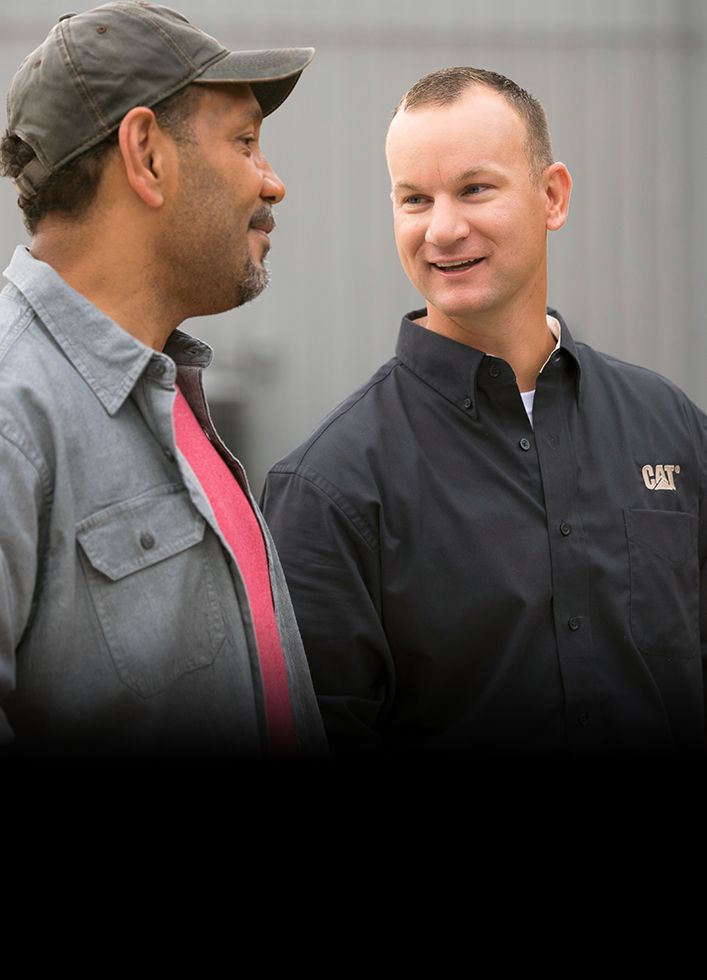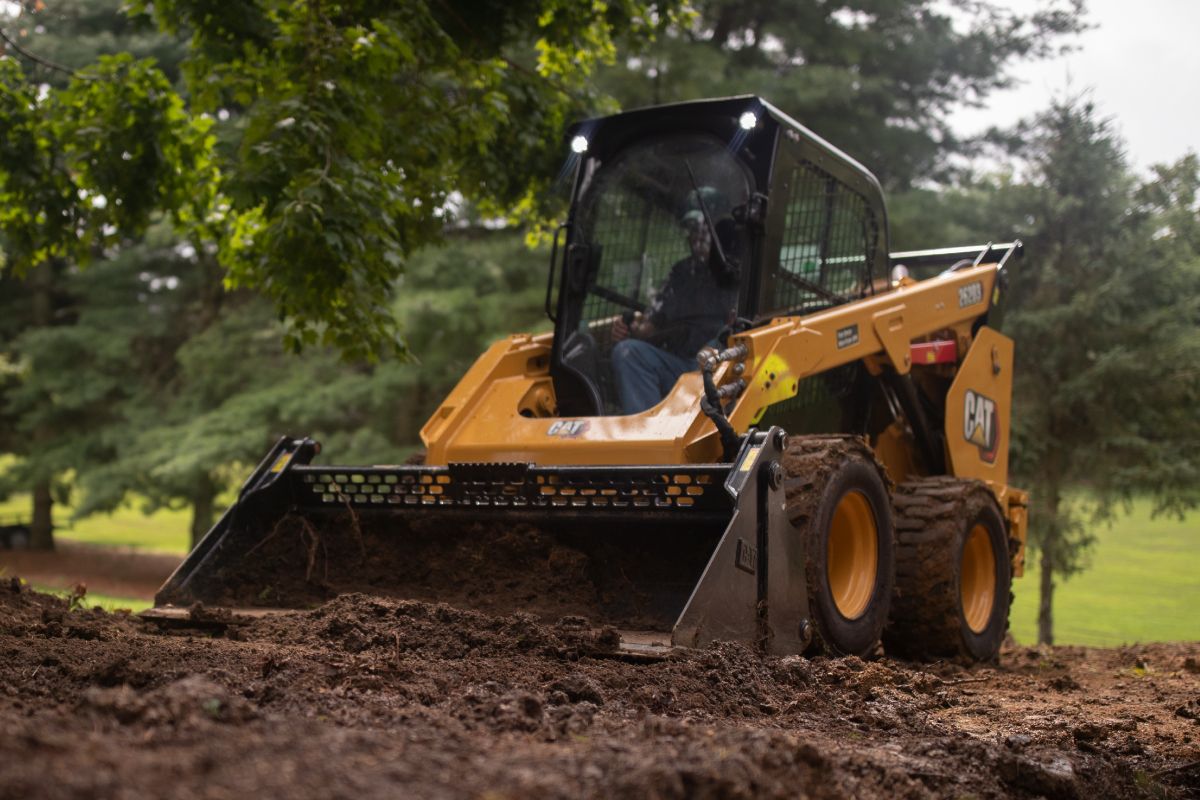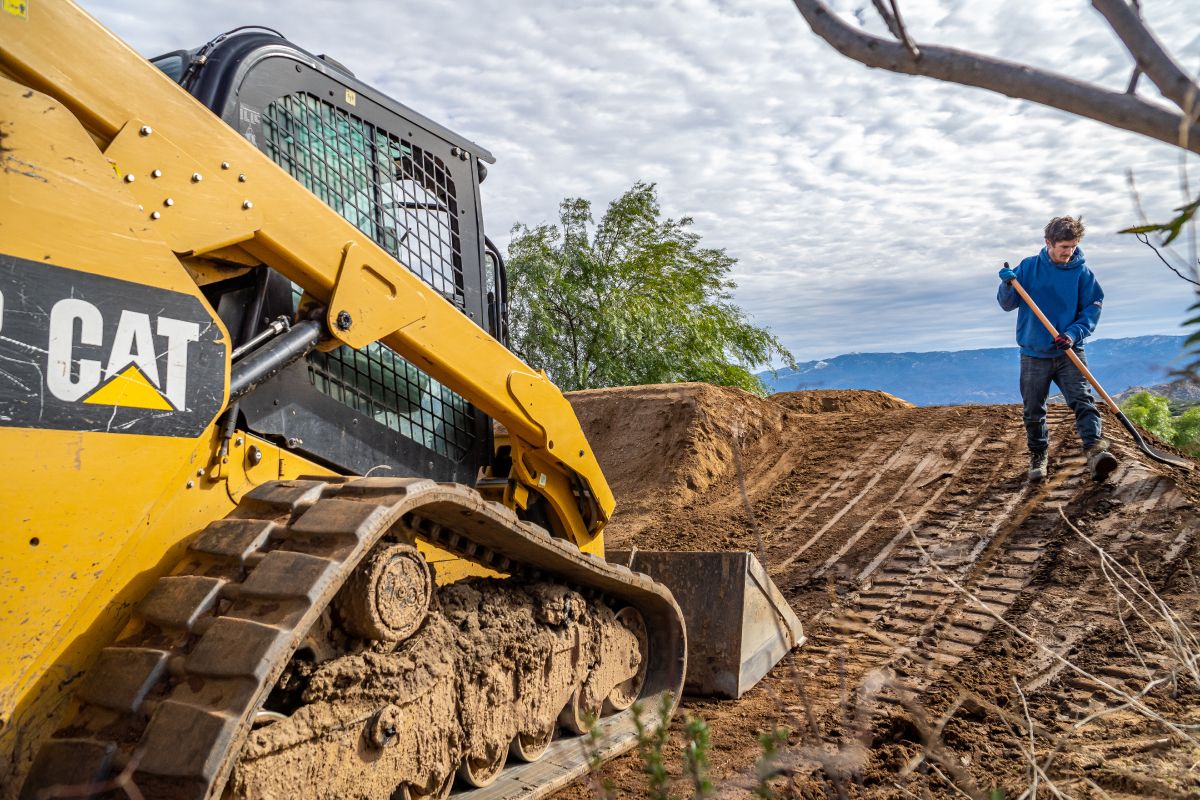If you already have an existing account with another Cat App, you can use the same account to sign in here.
One Account. All of Cat.
Your Caterpillar account is the single account you use to log in to select services and applications we offer. Shop for parts and machines online, manage your fleet, go mobile, and more.
Account Information
Site Settings
Security
Building Construction Business Best Practices
Creating a better construction business isn’t just about time in the field. We caught up with Cat® Ambassador Missy Scherber for her tips on building construction business best practices, including ways to make the business development process more successful, boost business leadership skills and improve growth strategies.
CAITLIN MADDOCK-BAHR | Social Media & Digital Strategy Manager
While doing great work in the field is a big part of running a successful construction company, there are other factors you should still pay attention to that help your business thrive. Cat Ambassador Missy Scherber knows just how important building construction business best practices is, having done so for her and her husband’s company T. Scherber Demolition & Excavating. Missy shares her strategy and advice for business development, growth strategies and developing business leadership skills below.
Construction Business Development: It’s All About Relationships
Missy is always thinking about business development and has many different avenues when it comes to learning about and winning new projects. But the core idea at the center of all her efforts is a focus on building authentic relationships.
One place she starts is with involvement in associations, such as the Association of Women Contractors (AWC). To get the most out of your association membership, it’s important to be an active member by attending events, being on committees and talking with association leadership.
“When I first joined the AWC, I sat down with the executive director and shared that I was a new member, new to the commercial marketplace and needed support building my business,” says Missy. “In turn, I wanted to support the association by being an active member. They introduced me to some of our top customers we’re still working with today.”
Another area she focuses on is the bidding process itself. She makes it a point to reach out to a potential customer before the bidding process begins and asks them if she has permission to call and get feedback on T. Scherber’s first three bids. She’s found that being proactive in the process has helped them get a leg up on their competition.
“A lot of companies miss out by not being engaged in the bidding process,” she notes. “It’s a great business development strategy to grow your customer base and your project pipeline.”
She recommends building those relationships with various estimators to help make the bidding process more efficient, since they are often willing to share some insights and advocate for your business internally.
No matter where new business comes from, project fit and follow up are two key things to keep in mind when approaching your business development strategy. Missy makes sure she finds the right project that fits her customer and is a good fit for her business and team’s capabilities. Even if a potential customer doesn’t have a project that would suit T. Scherber right away, Missy keeps in touch with them in case anything opens up in the future.
“Even when our pipeline is full, I like to be thinking 6 to 12 months, sometimes even 18 months out,” says Missy. “I’ll ask current and potential customers what projects are coming down the pipeline, which helps build out our future schedule.”

Construction Growth Strategies: Manage Resources Wisely
Another important construction business best practice is keeping a close eye on your expenses. It’s important both internally and with potential customers between many of them ask for financials during the bidding process and want to make sure you’re a cash-positive company.
Oftentimes when growing into a new marketplace, every job could need a different piece of equipment. Something that was key to help Missy take a more informed approach to equipment purchases and rentals was entering a mentoring relationship with another construction business.
“They really helped us consider our approach more carefully,” Missy comments. “Are we going to utilize this piece of equipment on one job or is there enough work in the pipeline to utilize it for a year? We like to rent equipment until there’s enough jobs in the pipeline to justify purchasing.”
One way to track this is through a simple spreadsheet where you can log each piece of equipment, how often it was used, and how much you rented it for. This gives you a better idea of the equipment it might make sense to purchase and helps you plan ahead.
Business Leadership Skills: Happy Employees for Better Work
The relationship building doesn’t stop with new business. You can apply those same principles to improving your business leadership skills, whether that’s with your operators on the job or with the people who provide essential services for your company.
One thing Missy recommends is treating the professional services you rely on, like your CPA, insurance carrier, accountant, banker and attorneys, as partners in your company. This might mean changing some of the businesses you use to provide these services in order to get the right fit.
“I’m relying on them for their expertise to help us grow and be successful,” she says. “It’s really helped us gain more insight into how to make the best decisions to keep us growing. A lot of companies don’t do this since they’re more bogged down in the day-to-day. But because I’m working so closely with our professional services, they’re right there when I need something.”
Another important group to focus on when it comes to your business leadership skills is your operators and their families. Part of retaining your current workforce should involve regular check-ins with your team.
“We ask every team member three things each week: What did you love? What did you loathe or was a challenge? And what is your priority for next week?” Missy notes. “This has given us a better understanding of the things our team members like to do and the things they don’t like to do. It also helps us identify any challenges in their day-to-day jobs that we need to find solutions for.”
Something else you might consider is hosting events for your team where their families are also invited to attend. Missy recently hosted a big open house where all of the employees could bring their families to tour the facilities and meet the crew. She finds moments where you can thank your crew and let their families know how much you appreciate their hard work invaluable.
How to Start Building Construction Business Best Practices
If you want to improve your construction business best practices, Missy recommends focusing on developing those strong relationships, whether it’s with customers, professional services or your operators. If you’re not much of a relational person, find someone who is so that can be their focus.
“Dirtwork is a gritty industry, but there’s such a human aspect to it that if you’re focused and intentional with it or have someone internally to focus on that, it makes a huge impact. The next generation of earthmovers are really going to bring that human aspect into their company.”


CAITLIN MADDOCK-BAHR
Social Media & Digital Strategy Manager
Caitlin Maddock-Bahr exercises her storytelling expertise as a social media & digital strategy manager. In this role, she not only helps Caterpillar connect with their audience, but helps customers connect with the brand.
RELATED ARTICLES
You’re here to get ideas to grow your business. Read on for machine insights and expert tips and tricks to get more out of every job.
-
2021 Fall Landscaping Trends
From low maintenance plants to seasonal displays, we explore the 2021 fall landscaping trends you need to know.
Learn More -
Making a Difference with Voices for Healthy Green Spaces
The NALP’s Voices for Healthy Green Spaces initiative aims to create advocates to help make landscapers’ jobs easier.
Learn More -
Jarryd McNeil’s Guide to Building Motocross Tracks
Cat Ambassador Jarryd McNeil shares his advice on the equipment you need for building motocross tracks.
Learn More -
2022 Snow and Ice Holiday Gift Guide
With winter approaching, we’ve got everything you need for you, your crew, and your family in our 2022 snow and ice holiday gift guide.
Learn More









